From “Harry Potter” to “Lord of the Rings,” the immersive nature of our most beloved books center on their dynamic settings and the author’s ability to make us feel like we’re right there with the characters in the thick of the story. While we can’t take the train to Hogwarts or make the trek to the Shire, these authors had to get their inspiration from somewhere. Many of the worlds our favorite writers have constructed trace their roots back to a real-world city or landmark, and some of these places still stand today. Whether local spots or locations across the globe, we’ve compiled a list of 15 places made popular by famous books.
1. King’s Cross Station, London, England
Harry Potter series by J.K. Rowling

You may not be able to take the train at the fictitious 9 ¾ platform, but “Harry Potter” fans can visit King’s Cross Station in London to at least see the place that launched Harry’s Hogwarts experience. Visitors can take their picture beside the 9 ¾ sign, as well as browse the Harry Potter shop. And beyond its significance for J.K. Rowling fans, King’s Cross Station is all but unavoidable on a trip to London. The 150-plus-year-old station underwent a major restoration effort in the last 10 years, with the facility and the surrounding area now a burgeoning cultural and retail destination.
“Excuse me sir, can you tell me where I might find Platform 9 and 3 quarters?”
2. Walden Pond, Concord, Massachusetts
Walden by Henry David Thoreau
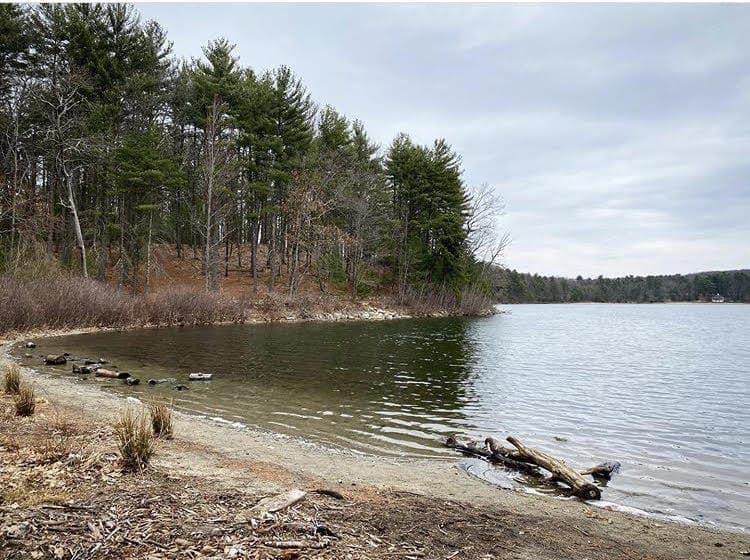
The famed transcendentalist captures the simple beauty of Walden Pond in his 1854 work “Walden.” Thoreau lived by Walden Pond, protected as part of Walden Pond State Reservation, for more than two years in an effort to “live deliberately.” While his house no longer stands on the property, you can visit a replica of his one-room cabin. People can also tour the reservation, now a National Historic Landmark, as well as swim in the pond or take a boat out on the water.
“In such a day, in September or October, Walden is a perfect forest mirror, set round with stones as precious to my eye as if fewer or rarer. Nothing so fair, so pure, and at the same time so large, as a lake, perchance, lies on the surface of the earth.”
3. The Pond in Central Park, New York, New York
Catcher in the Rye by J.D. Salinger
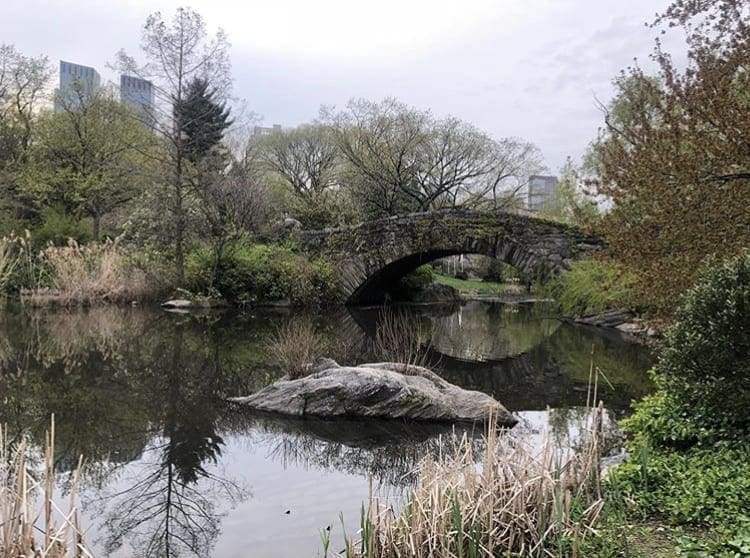
Most of us read J.D. Salinger’s classic in high school, and it’s hard to forget main character Holden Caulfield’s fixation on the ducks in The Pond in Central Park. The Pond makes for an easy visit for New Jerseyans and New Yorkers, especially now, and the ducks are an ever-present fixture in the water. “Catcher” enthusiasts can retrace Holden’s steps, and probably with more success. People remark that they’ve seen the ducks sitting atop the ice in the dead of winter, so Holden never really had to fear for their well-being at all.
“I was thinking about the lagoon in Central Park, down near Central Park South. I was wondering if it would be frozen over when I got home, and if it was, where did the ducks go.”
4. The Stanley Hotel, Estes Park, Colorado
The Shining by Stephen King
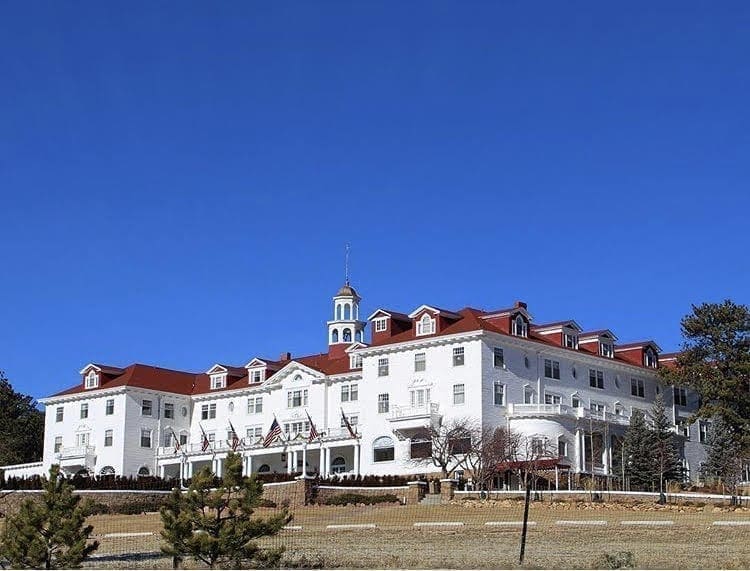
Given the ghost stories that float around The Stanley, it’s no surprise that this place is the inspiration behind The Overlook Hotel in King’s creepy classic. In 1974, King and his wife spent a night as the only guests in The Stanley, a day before the hotel was set to close for the winter season. King describes a dream he had that night of his son running down the hallways and notes, “I got up, lit a cigarette, sat in the chair looking out the window at the Rockies, and by the time the cigarette was done, I had the bones of the book firmly set in my mind.”
“Jack stood in the dining room just outside the batwing doors leading into the Colorado Lounge, his head cocked, listening. He was smiling faintly. Around him, he could hear the Overlook Hotel coming to life.”
5. Bath, England
Persuasion by Jane Austen
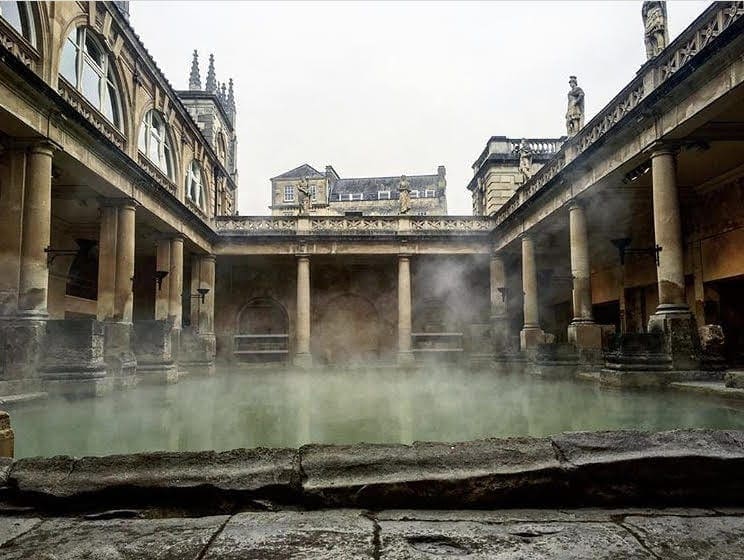
Jane Austen’s final novel “Persuasion” takes place in Bath, England, a city named after the Roman Baths established more than 2,000 years ago. In the novel, the Elliot family relocates to the fictional Kellynch Hall in Bath. Though the Elliot family home doesn’t exist, tourists can still sightsee in the city that inspired the novel. The Jane Austen Centre also resides in Bath. Visitors can take tours hosted by costumed guides to learn more about Austen and life during the Regency Times.
“Prettier musings of high-wrought love and eternal constancy, could never have passed along the streets of Bath, than Anne was sporting with from Camden Place to Westgate Buildings. It was almost enough to spread purification and perfume all the way.”
6. Prince Edward Island, Canada
Anne of Green Gables by L.M. Montgomery
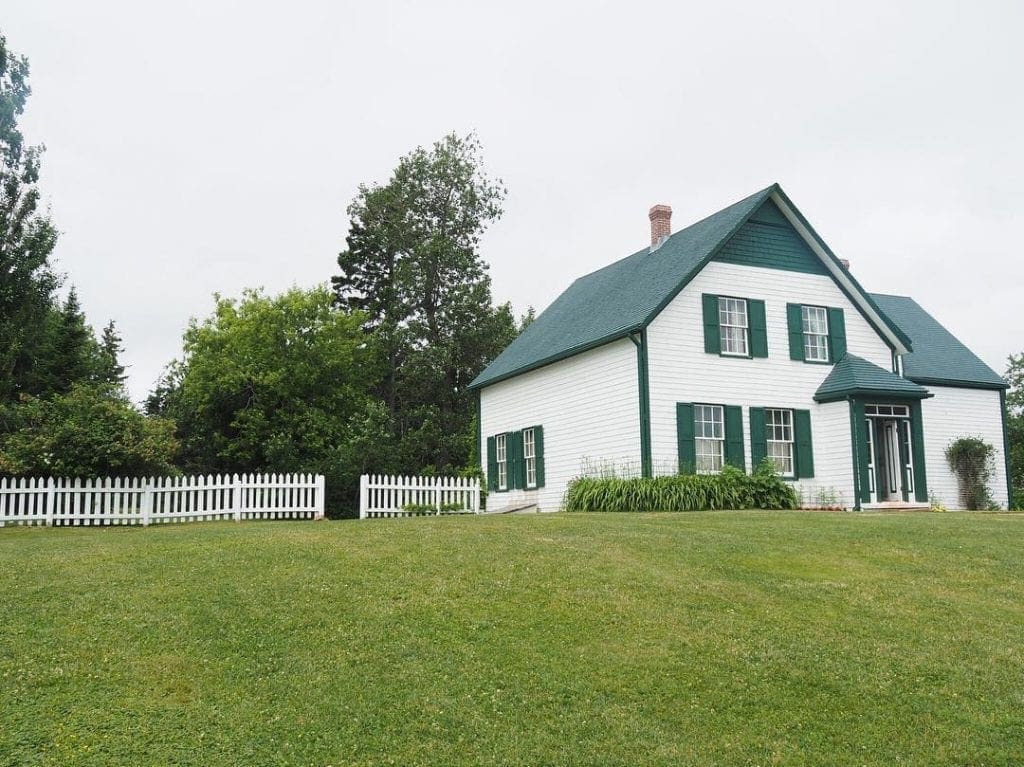
Photography by Courtney Elko (www.
The charming “Anne of Green Gables” series by Lucy Maud Montgomery became a staple for young readers from its initial publication in 1908. The book takes place on the expansive farmlands of Prince Edward Island in Canada, the smallest province of the country. With the book’s rise to fame, Canada proudly declared the part of the landscape that inspired the series a national park. Nostalgic adults or parents with children can visit Prince Edward Island’s Green Gables Heritage Farm, as well as several museums and parks, to explore the scenery that served as the backdrop for this childhood classic.
“‘Dear old world,’ she murmured, ‘you are very lovely, and I am glad to be alive in you.’”
7. Dublin, Ireland
Ulysses by James Joyce
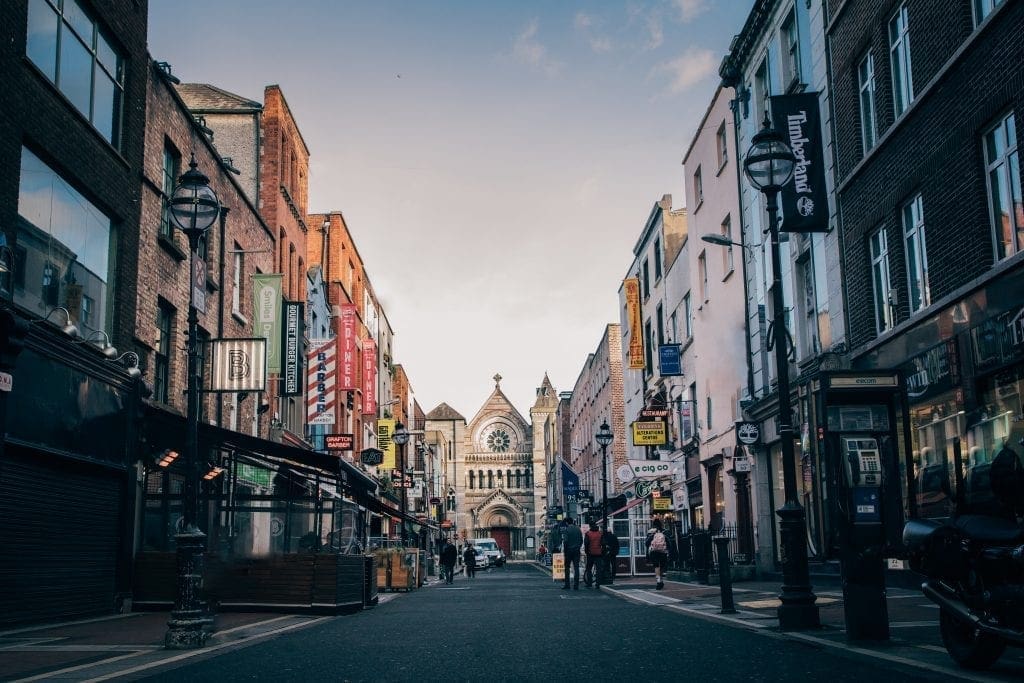
“Ulysses,” the modern parallel to Homer’s “Odyssey,” is regarded as one of the best books of all time for the way it captures the depth and complexity of life, all in its simple concept. Told in a stream-of-consciousness interior monologue, the book follows the characters on a single day in their lives as they move throughout Dublin. IrishCentral compiled a list of locations “Ulysses” aficionados can visit to recreate this now-infamous fictional day.
“Hold to the now, the here, through which all future plunges to the past.”
8. The Spaniards Inn, London, England
Dracula by Bram Stoker and The Pickwick Papers by Charles Dickens
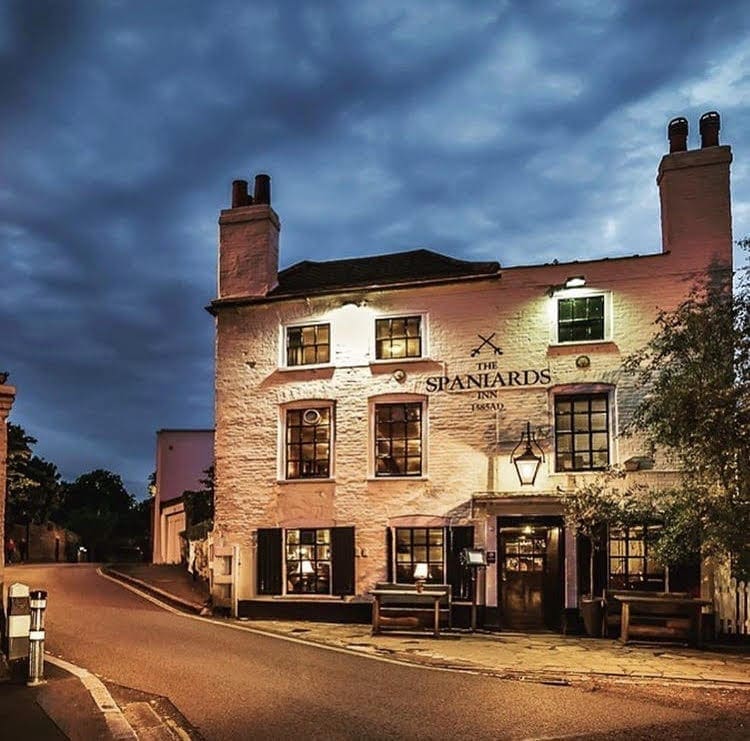
The Spaniards Inn remains a travel destination for literary lovers for a host of reasons, not least of which include the references made to the historic pub in Bram Stoker’s iconic “Dracula” and “The Pickwick Papers” by Charles Dickens. It is said to have connections to other writers, as well, including John Keats who supposedly wrote his well-known poem “Ode to a Nightingale” in the pub. With roots tracing back to the 16th century, the building is a historical fixture in Hampstead Heath, London and still stands today for bookworms to explore.
“By good chance we got a cab near the ‘Spaniards,’ and drove to town.”
9. Isle of Skye, Scotland, United Kingdom
To The Lighthouse by Virginia Woolf
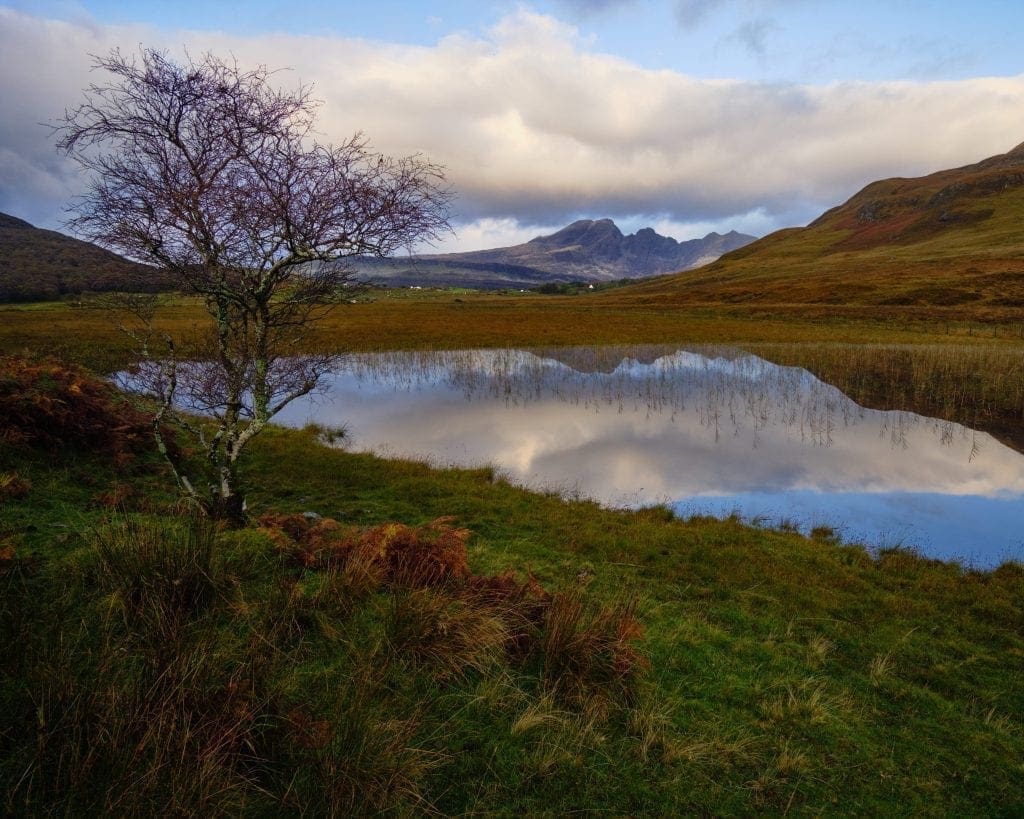
Set on the Isle of Skye in Scotland, Virginia Woolf’s “To The Lighthouse” is universally recognized as one of her greatest books. In the novel, the Ramsay family returns to their home on the island over the course of a decade in the early 1900s. While the home exists only in the book, you can visit the setting of the Ramsay’s summer home on the Isle of Skye. Visitors can tour its attractions and events, all in view of one of Woolf’s most poignant works.
“The sigh of all the seas breaking in measure round the isles soothed them; the night wrapped them; nothing broke their sleep, until, the birds beginning and the dawn weaving their thin voices in to its whiteness…”
10. Pamplona, Spain
The Sun Also Rises by Ernest Hemingway

One of Hemingway’s most famous works, “The Sun Also Rises” takes readers to the San Fermin Festival’s running of the bulls in Pamplona, Spain. Set in the 1920s and inspired by Hemingway’s visit to Pamplona, the book—widely regarded as some of his best work—highlights landmarks throughout the city that people can still visit today. Café Select, Botín, and Cafe Iruña are all locations you can visit during a trip to Spain to retrace the steps in “The Sun Also Rises.” The running of the bulls also still takes place in Pamplona each year, so mark your calendars for early July!
“‘We’re going to the fiesta at Pamplona.’
‘You like the bull-fights?’
‘Sure. Don’t you?’”
11. Montclair, NJ
Cheaper by the Dozen by Frank B. Gilbreth and Ernestine Gilbreth Carey
Though the original house behind the book “Cheaper By The Dozen” no longer stands, people can still visit the site of the castle-like Victorian at 68 Eagle Rock Way in Montclair, NJ that once housed the 14-member Gilbreth family. Two of the Gilbreth children who grew up in the Montclair home published the book in 1948. The film inspired a 1950 movie, and a more recent series of film adaptations loosely based on the story. If you’re a diehard fan of either, a visit to the site in Montclair makes for a great local visit, and the town also has well-regarded restaurants and dining spots to make a day of it.
“As we entered Montclair, he drove through the worst section of town, and finally pulled up at an abandoned structure that even Dracula wouldn’t have felt at home in.
‘Well, here it is,’ he said. ‘Home. All out.’”
12. Yorkshire, England
Wuthering Heights by Emily Brontë
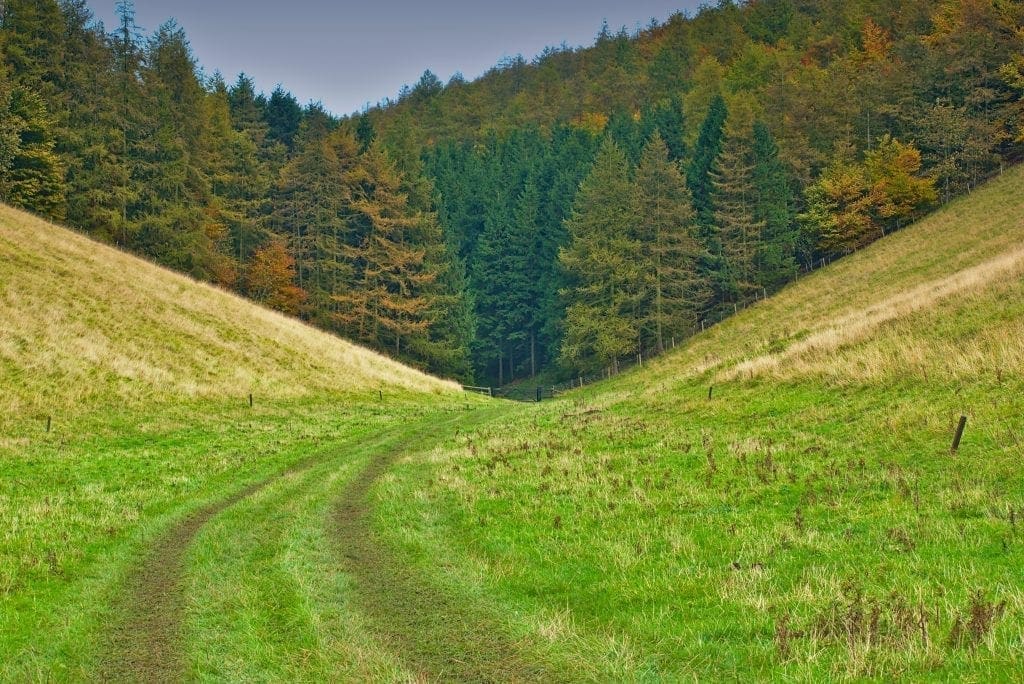
Emily Brontë’s only finished novel, “Wuthering Heights,” has become a classic in English literature. The setting on the Yorkshire Moors provides a symbolic backdrop to the tragic themes of the novel. If you find yourself in England, you can visit the different locations seen throughout “Wuthering Heights,” including the moors. Also, Ponden Hall—the house that inspired Brontë’s famous work—is currently for sale, with more information about the historic property here.
“He said the pleasantest manner of spending a hot July day was lying from morning till evening on a bank of heath in the middle of the moors…”
13. Mark Twain Cave, Hannibal, Missouri
The Adventures of Tom Sawyer by Mark Twain
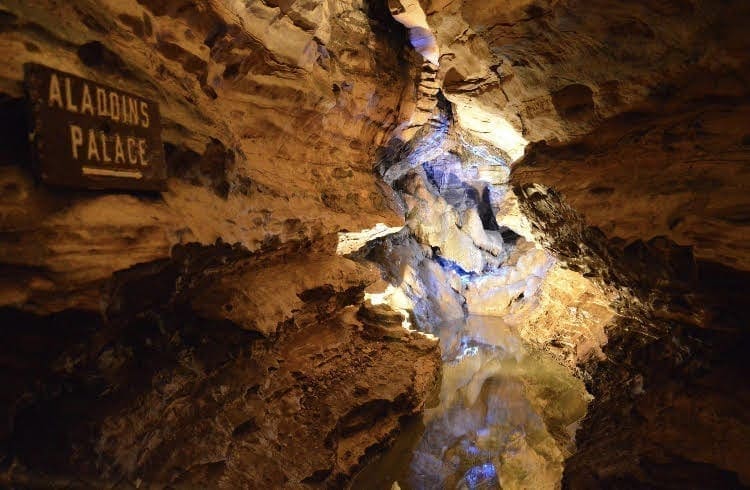
Mark Twain Cave, known as McDougal’s Cave in the author’s first novel, originally held the name McDowell’s Cave. Following the success of “The Adventures of Tom Sawyer” after its 1876 publication, the now-famous cave in Hannibal, Missouri was renamed in 1880 to honor Twain. With its wide, winding passages that extend for miles and rich history, Mark Twain Cave remains one of the most interesting places made popular by famous books. Today, Mark Twain Cave, along with the other caves located in this region of Missouri, is privately owned and offers tours, a winery, and a campground. More recently, it was discovered that Twain signed his name in the cave as a child under his given name Sam Clemens.
“Who’s ready for the cave?”
14. De Smet, South Dakota
Little House on the Prairie series by Laura Ingalls Wilder
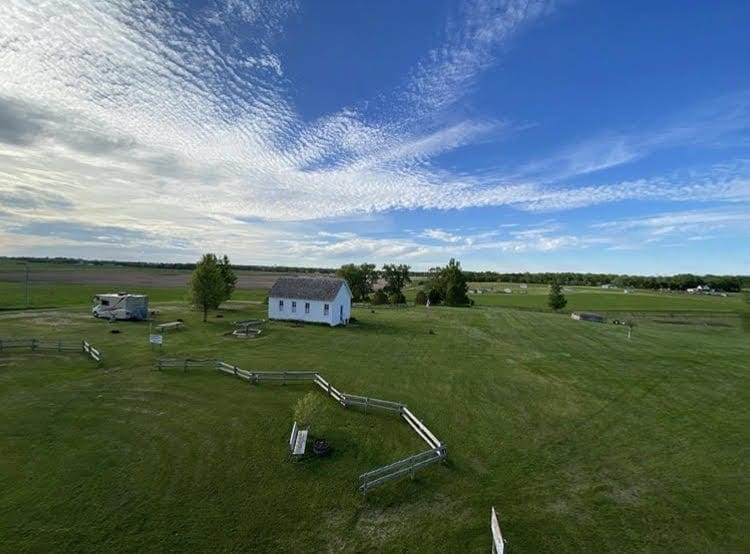
Whether you grew up on the “Little House” book series or the television show, the Ingalls Homestead in De Smet, South Dakota is the perfect spot to see these stories’ real-life reflections. The real Ingalls family called De Smet home for years, and sites like the church, school, and family homes remain in the town for visitors to take a guided tour and fuel their childhood nostalgia.
“Some old-fashioned things like fresh air and sunshine are hard to beat.”
15. Waikato, New Zealand
Lord of the Rings series by J.R.R. Tolkien
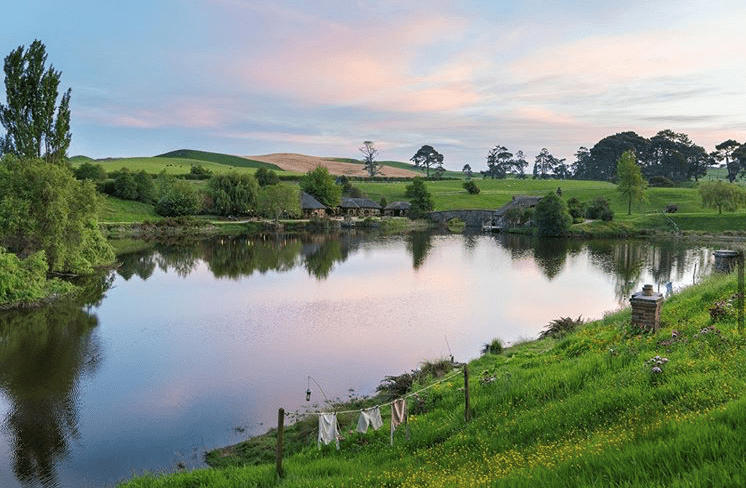
To change it up, we’re taking you to a travel destination built entirely around a book. Hobbiton in Waikato, New Zealand was constructed because of the “Lord of the Rings” books, for the purpose of shooting the movie series. Nestled in the rolling green hills of Waikato, the set was established on this picturesque land for its resemblance to The Shire in Tolkien’s novels. Fans can tour the set to see the books come to life and learn behind-the-scenes stories from the movies.
“Don’t adventures ever have an end? I suppose not. Someone else always has to carry on on the story.”
Liana is an editorial assistant intern at The Digest. Her hobbies include reading, writing, and drinking too much coffee.

